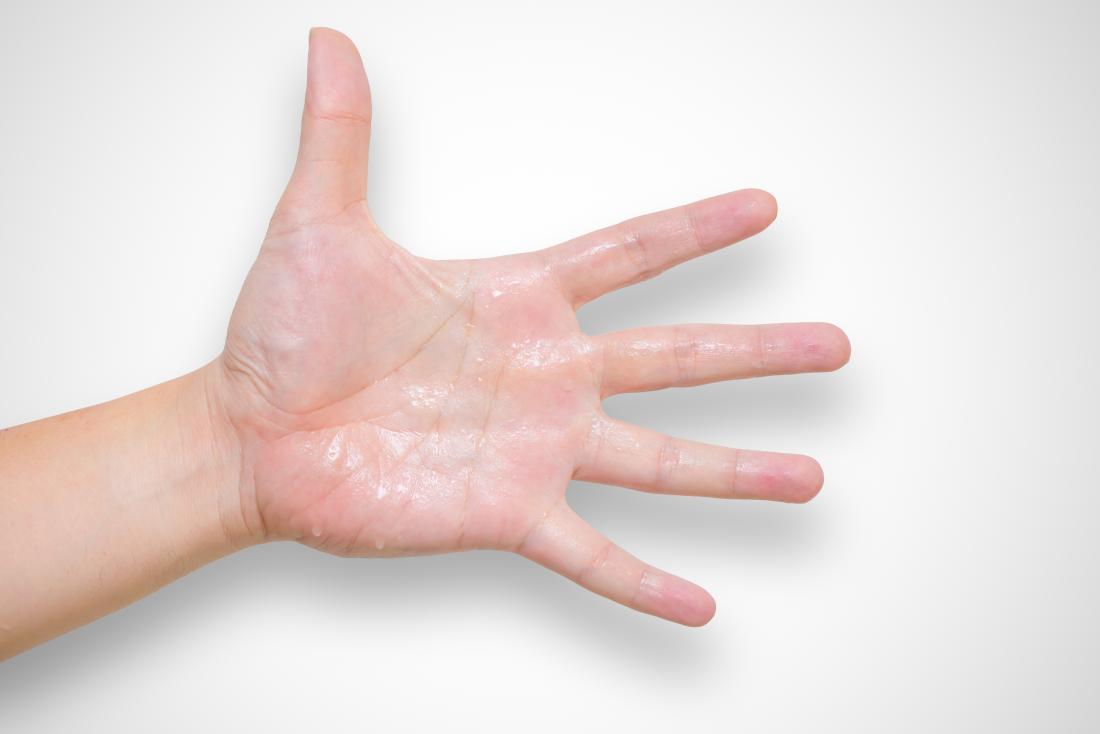Understanding the Root Causes of Excessive Sweating and Its Influence on Daily Life
While it is typically understood as a physical action to control body temperature, the triggers for too much sweating can differ commonly among people, including not only physical variables yet mental and also psychological aspects. By diving right into the root triggers of hyperhidrosis and discovering its diverse effects, a much deeper understanding of this pervasive concern can be acquired, shedding light on the intricacies that individuals grappling with too much sweating navigate on a day-to-day basis.
Physiology of Sweat Glands
The law of sweat production, a vital physiological process, is mostly controlled by the activity of sweat glands dispersed throughout the human body. Sweat glands are categorized into 2 major types: eccrine and apocrine glands.
When the body temperature climbs, either due to exercise, high temperature levels, or psychological stress, the anxious system causes the gland to produce sweat. This sweat is composed mostly of water and electrolytes like salt and chloride. The process of sweat production is vital for keeping the body's inner temperature within a narrow, ideal variety, highlighting the essential role sweat glands play in human physiology.
Triggers for Excessive Sweating
In comprehending the origin triggers of too much sweating, it is crucial to identify the triggers that can result in this physiological reaction. Extreme sweating, likewise called hyperhidrosis, can be motivated by numerous elements, both environmental and physiological. One common trigger is emotional stress or anxiety, which can stimulate the body's sweat glands to generate even more sweat than is essential for cooling down. Physical physical effort, high temperature levels, and spicy foods are additionally recognized to cause too much sweating in people susceptible to this condition. Specific medical problems like hyperthyroidism, diabetes mellitus, or menopause can add to extreme sweating as well.
Moreover, medications such as some antidepressants, opioids, and particular supplements can likewise act as triggers for hyperhidrosis. Recognizing these triggers is vital in managing extreme sweating effectively - Exessive Sweating. By determining and addressing the certain triggers that prompt extreme sweating in an individual, doctor can establish personalized treatment strategies to reduce this problem and improve the individual's top quality of life
Medical Issue Associated
Connected with too much sweating are various medical problems that can aggravate this physiological action. One usual condition is hyperhidrosis, a condition identified by abnormally enhanced sweating that surpasses the body's thermoregulatory demands. This can manifest in focal areas like the palms, soles, underarms, or face, affecting a person's top quality of life due to social humiliation and discomfort.
Additionally, endocrine disorders such as hyperthyroidism, diabetes, and menopausal warm flashes can likewise lead to extreme sweating. Hyperthyroidism causes an overflow of thyroid hormonal agents, speeding up metabolism and causing sweating.
Additionally, infections like consumption, HIV, and endocarditis have been connected with Go Here night sweats, a common signs and symptom understood to disrupt rest and affect total wellness. These medical problems highlight the diverse series of underlying elements that can add to extreme sweating, necessitating detailed assessment and management by health care professionals.
Psychological and Psychological Elements

Influence On Social Communications
Excessive sweating can have profound results on an individual's ability to involve easily in social interactions. The visible indicators of sweat stains or wet spots on clothes can cause embarrassment and self-consciousness, causing people to you can find out more withdraw from social circumstances. This withdrawal can influence relationships, limitation social tasks, and hinder professional and personal development.

In addition, the anxiety and self-esteem problems coming from extreme sweating can influence interaction and social abilities. People might battle to concentrate on discussions, join team tasks, or share themselves with confidence. This can bring about sensations of seclusion and isolation, as social links come to be testing to preserve.
Final Thought

While it is typically understood as a physical action to control body temperature, the triggers for too much sweating can differ commonly among people, including not only physical factors yet mental and also psychological aspects. By delving right into the origin causes of hyperhidrosis and discovering its diverse effects, a much deeper understanding of this pervasive concern can be gotten, shedding light on the intricacies that individuals grappling with extreme sweating browse on a day-to-day basis.
Physical effort, high temperatures, and spicy foods are also recognized to set off too much sweating in individuals prone to this problem. By identifying and attending to the particular triggers that motivate extreme sweating in a specific, health care providers can create personalized therapy plans to ease this condition and enhance the person's quality of life.
Too much sweating can have profound impacts on a person's ability to visit the website involve pleasantly in social interactions.
Comments on “Leading Dermatology Treatments for Hyperhydrosis of Hands and Feet: What You Required to Know”